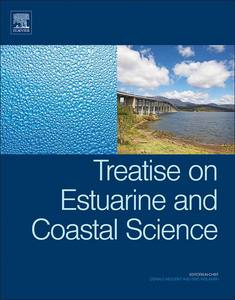A scencario analysis of climate change and ecosystem services for the Great Barrier Reef
Costanza, R., Bohensky, E., Butler, J.R.A., Bohnet, I., Delisle, A., Fabricius, K., Gooch, M., Kubiszewski, I., Lukacs, G., Pert, P., and Wolanski, E. (2011) A scencario analysis of climate change and ecosystem services for the Great Barrier Reef. In: Wolanski, Eric, McLusky, Donald, van den Belt, M., and Costanza, R., (eds.) Ecological Economics of Estuaries and Coasts. Treatise on Estuarine and Coastal Science, 12 . Academic Press, London, UK, pp. 305-326.
![[img]](https://researchonline.jcu.edu.au/21328/1.hassmallThumbnailVersion/21328_Wolanski_2011_Book_Cover.jpg)
|
Image (JPEG) (Book cover)
- Cover Image
Download (112kB) |
|
|
PDF (Published Version)
- Published Version
Restricted to Repository staff only |
Abstract
The extent to which nations and regions can actively shape the future or must passively respond to global forces is a topic of relevance to current discourses on climate change, ecosystems services, and human well-being. In Australia, climate change has been identified as the greatest threat to the ecological resilience of the Great Barrier Reef and the multiple ecosystem services it provides, but is exacerbated by regional and local pressures. In this chapter, we discuss previous applications of scenario analysis and describe a case study we undertook to explore how two key uncertainties may influence these threats and their impact on the Great Barrier Reef and adjacent catchment’s ecosystem services in the future. These two uncertainties were whether (1) global development and (2) Australian development are defined and pursued primarily in terms of economic growth or broader concepts of human well-being and environmental sustainability, and, in turn, how climate change is managed and mitigated. We compared the implications of four scenarios for marine and terrestrial ecosystem services and human well-being. The results suggest that while regional actions can partially offset global inaction on climate change until about mid-century, there are probable threshold levels for marine ecosystems, beyond which the Great Barrier Reef will become a fundamentally different system by 2100 if climate change is not curtailed. Management that can respond to pressures at both global and regional scales will be needed to maintain the full range of ecosystem services. It is possible to maintain human well-being even while some ecosystem services decline, but only if regional management is strong. The future of the region depends largely on whether national and regional decision makers choose to be active future 'makers' or passive future 'takers' in responding to global drivers of change. The chapter concludes by discussing potential avenues for using these scenarios for further discussion and consensus building with the Great Barrier Reef region's stakeholders.
| Item ID: | 21328 |
|---|---|
| Item Type: | Book Chapter (Research - B1) |
| ISBN: | 978-0-12-374711-2 |
| Keywords: | climate change; ecosystem services; future scenarios; Great Barrier Reef; human well-being; scale |
| Related URLs: | |
| Date Deposited: | 17 Apr 2012 06:04 |
| FoR Codes: | 05 ENVIRONMENTAL SCIENCES > 0502 Environmental Science and Management > 050209 Natural Resource Management @ 100% |
| SEO Codes: | 96 ENVIRONMENT > 9605 Ecosystem Assessment and Management > 960506 Ecosystem Assessment and Management of Fresh, Ground and Surface Water Environments @ 50% 96 ENVIRONMENT > 9603 Climate and Climate Change > 960307 Effects of Climate Change and Variability on Australia (excl. Social Impacts) @ 50% |
| Downloads: |
Total: 453 Last 12 Months: 4 |
| More Statistics |



